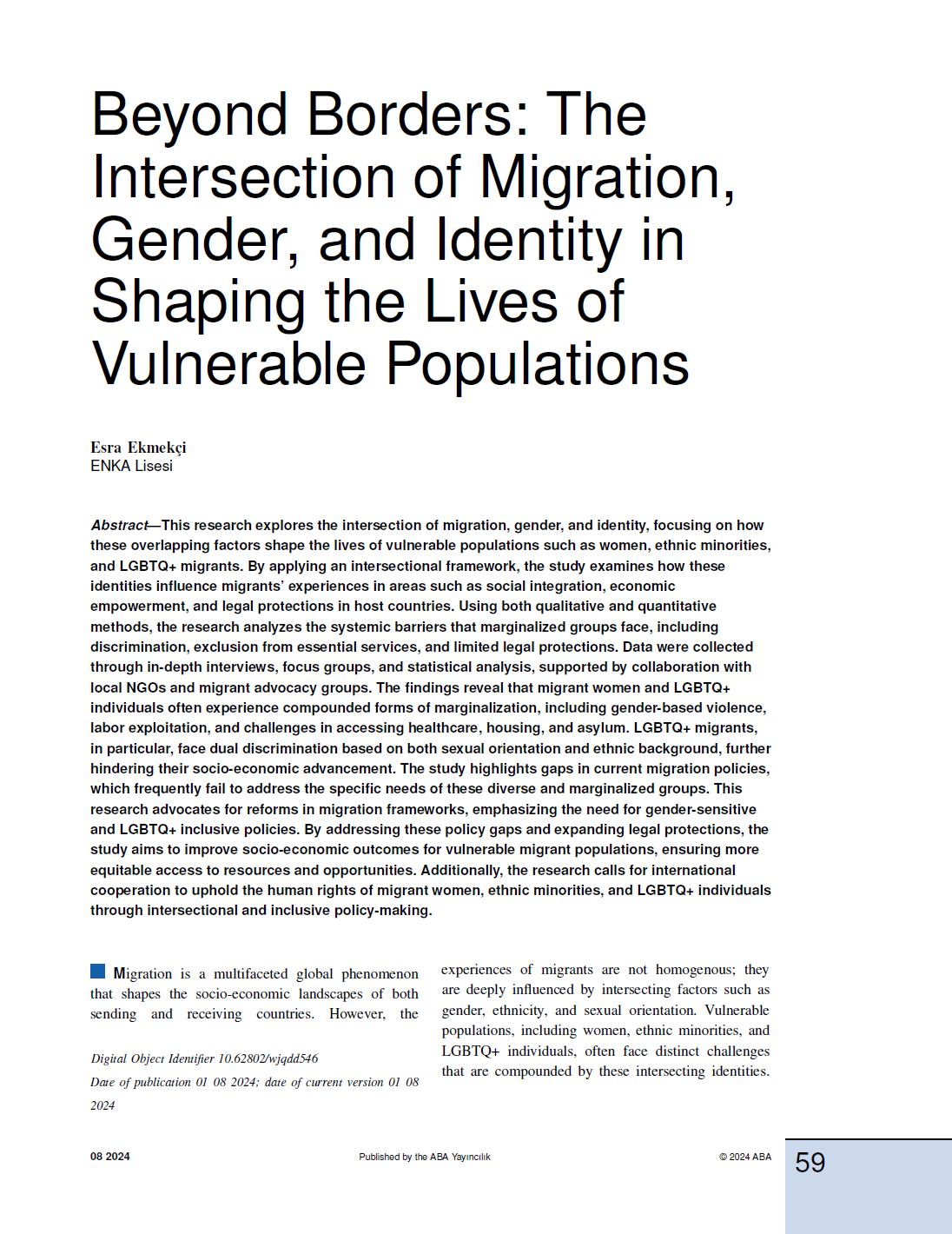Beyond Borders: The Intersection of Migration, Gender, and Identity in Shaping the Lives of Vulnerable Populations
DOI:
https://doi.org/10.62802/4hqb4p87Keywords:
LGBTQ+ inclusive policies, legal protections, vulnerable populations, ethnic minorities, discrimination, human rights, migration policies, inclusive policy-makingAbstract
This research explores the intersection of migration, gender, and identity, focusing on how these overlapping factors shape the lives of vulnerable populations such as women, ethnic minorities, and LGBTQ+ migrants. By applying an intersectional framework, the study examines how these identities influence migrants’ experiences in areas such as social integration, economic empowerment, and legal protections in host countries. Using both qualitative and quantitative methods, the research analyzes the systemic barriers that marginalized groups face, including discrimination, exclusion from essential services, and limited legal protections. Data were collected through in-depth interviews, focus groups, and statistical analysis, supported by collaboration with local NGOs and migrant advocacy groups. The findings reveal that migrant women and LGBTQ+ individuals often experience compounded forms of marginalization, including gender-based violence, labor exploitation, and challenges in accessing healthcare, housing, and asylum. LGBTQ+ migrants, in particular, face dual discrimination based on both sexual orientation and ethnic background, further hindering their socio-economic advancement. The study highlights gaps in current migration policies, which frequently fail to address the specific needs of these diverse and marginalized groups. This research advocates for reforms in migration frameworks, emphasizing the need for gender-sensitive and LGBTQ+ inclusive policies. By addressing these policy gaps and expanding legal protections, the study aims to improve socio-economic outcomes for vulnerable migrant populations, ensuring more equitable access to resources and opportunities. Additionally, the research calls for international cooperation to uphold the human rights of migrant women, ethnic minorities, and LGBTQ+ individuals through intersectional and inclusive policy-making.
References
Baroudi, M. (2023). Beyond supply and demand: a new ecological framework for understanding the access of young migrants to sexual and reproductive health services in sweden. Global Health Action, 16(1). https://doi.org/10.1080/16549716.2023.2251783
Gottvall, M., Brunell, C., Eldebo, A., Metso, F., Jirwe, M., & Carlsson, T. (2022). Post‐migration psychosocial experiences and challenges amongstlgbtq+ forced migrants: a meta‐synthesis of qualitative reports. Journal of Advanced Nursing, 79(1), 358-371. https://doi.org/10.1111/jan.15480
Oldroyd, J., Kabir, A., Dzakpasu, F., Mahmud, H., Rana, J., & Islam, R. (2021). The experiences of children and adolescents undergoing forced separation from their parents during migration: a systematic review. Health & Social Care in the Community, 30(3), 888-898. https://doi.org/10.1111/hsc.13595
Zaman, M. (2023). Experiences of pregnant venezuelan migrants/refugees in brazil, ecuador and peru: a qualitative analysis.. https://doi.org/10.21203/rs.3.rs-3089332/v1









